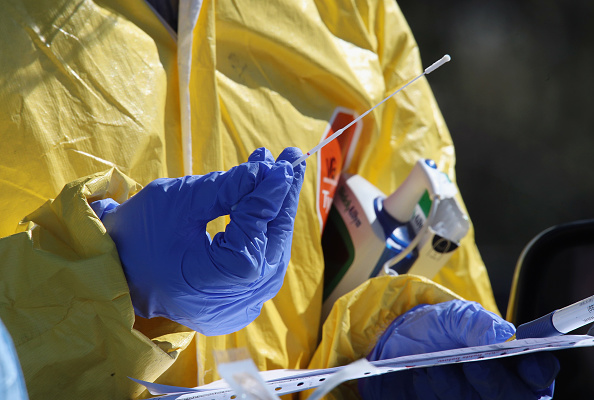
At the beginning of the pandemic, Alphabet’s life sciences subsidiary was tapped by the state of California to help expand testing across the state. The company, Verily, had previously created clinical trial recruitment tools, and planned to use a similar system to create screening questionnaires and other resources for Covid-19. But the work quickly ballooned from there.
“Very quickly we realized that we needed to support the actual testing capabilities. We as a nation just didn’t have enough testing sites,” said Dr. Vivian Lee, Verily’s president of health platforms, during a keynote interview at HLTH.

As Healthcare and Biopharma Companies Embrace AI, Insurance Underwriters See Risks and Opportunities
In an interview, Munich Re Specialty Senior Vice President Jim Craig talked about the risk that accompanies innovation and the important role that insurers play.
The company began to build out testing capabilities in conjunction with local health departments and Rite Aid. After taking a screening quiz, people are directed to a nearby testing site, and receive their results through the platform. Most of the sites are in California, though the partnership also includes testing in 14 other states, primarily on the coasts.
Though it’s a far cry from the national testing platform President Donald Trump touted in early March, to date, Verily has done more than 1 million tests through this program. The company also stood up its own small lab testing capability, which Lee said proved useful when traditional laboratories faced backlogs.
“One of the issues we were struggling with this summer was the shortage of reagents for the lab testing companies. What that led to was unfortunate delays in the turnaround time,” Lee said. “You would get tested but you might not get results back for several days. That sort of defeated the purpose of the test frankly if it took too long.”
More recently, Verily started to work with companies and universities to offer Covid-19 screening and testing. For example, it names the University of Alabama System and Brown University as some of its clients.
“The most important lesson that we’re learning is it’s critical to do regular testing of people who are asymptomatic. Because if you’re only testing people who are symptomatic, it’s already too late. By the time they’re symptomatic, there’s already been an outbreak,” Lee said.
In August, the University of Alabama announced ambitious plans to test more than 200,000 students who would attend classes at universities across the state. But later that month, like many schools offering in-person classes, it saw a surge in cases, with more than 1,200 students testing positive for the coronavirus at its main campus in Tuscaloosa.
Businesses have also struggled to navigate how to bring employees back into the office. Early on, many companies relied on measuring temperatures or symptom questionnaires, Lee said.
“I think now we’re increasingly seeing that they’re feeling that they’re going to need to do more testing,” she said. “At least until we have wide-scale vaccination.”
Photo Credit: Bruce Bennett, Getty Images








